What constitutes corruption and vested interests in the law-making process?
Resolution 126/NQ-CP states: In recent times, the Government, the Prime Minister , ministers, heads of ministerial-level agencies, and localities have focused considerable time and resources, and implemented numerous solutions to promote the development and improvement of the legal system and the organization of law enforcement. However, in light of the new situation, the development and improvement of the legal system and the organization of law enforcement still reveal some shortcomings.
In order to improve the quality of the work of building and perfecting the legal system and organizing the implementation of laws, and to prevent and combat corruption, vested interests, and negative practices in the work of lawmaking, the Government requests ministers, heads of ministerial-level agencies, and chairpersons of People's Committees of provinces and centrally-administered cities to review and evaluate the results of implementing the directives of the Central Committee, the Politburo , the Secretariat, the National Assembly, the Standing Committee of the National Assembly, the Government, the Prime Minister, the People's Councils, and the People's Committees of provinces and centrally-administered cities on institutional building and the organization of law enforcement, and to identify existing shortcomings and difficulties.
A view of the Mid-term Conference of the 13th Central Committee of the Communist Party of Vietnam on controlling power and preventing and combating corruption and negative practices in personnel work, on the morning of May 15, 2023. Photo: Tri Dung/TTXVN
So what constitutes corruption in lawmaking? Corruption in lawmaking, along with corruption in law enforcement, constitutes "policy corruption."
Corruption in the law-making process, while having significant consequences for the legal system in particular and society in general, is more difficult to detect than ordinary acts of corruption.
Corruption in lawmaking is closely linked to group interests and the vested interests of a particular sector, group, or entity. Only when there is collusion among many authorized individuals in different fields can a policy or law be manipulated to serve the interests of a group, thus illegally interfering with the distribution of power at the sectoral, local, or national level.
According to Associate Professor, Dr. Nguyen Quoc Su (Hanoi University of Interior Affairs), there are two basic interest groups that want to influence policies and laws: Firstly, state management agencies tasked with preparing legislative and regulatory projects often aim for the interests of their respective sectors and fields. Secondly, those affected by policies, who hope that the policies and laws, once enacted, will create advantages in the production and business activities of their enterprises.
Corruption in lawmaking begins with policy selection (choosing issues to serve the interests of a sector or group to be codified into law), followed by drafting policies into laws ("inserting" wording to serve group interests - according to National Assembly Chairman Vuong Dinh Hue), and finally the stage of passing and enacting the law (lobbying).
Common manifestations of corruption and vested interests in lawmaking include illegal and opaque policy lobbying that fails to harmonize societal interests; and bribing those in authority to select issues, draft, and enact policies to serve the interests of a particular sector or group. This is known as "policy lobbying."
"Policy lobbying," specifically manifested in the opaque and biased nature of policymaking, undermines the objectivity necessary for policy-makers. This leads to social inequality, causing national resources to serve only certain entities, benefiting one sector or group while harming the interests of other sectors and individuals, ultimately weakening the country and its political system.
Policy bias is more clearly manifested in economic laws, where a large enterprise uses its financial advantage to influence lawmaking in order to benefit itself, suppress weaker businesses, and infringe upon consumer interests.
Avoid formalism in social criticism.
Organizing social critique and gathering public opinion is a crucial step in the law-making process in our country.
Resolution 126/NQ-CP requires resolute action against acts of "corruption, negativity, and vested interests" in the law-making process, with one specific measure mentioned being to focus on organizing dialogues with businesses and citizens.
The 2013 Constitution established fundamental provisions requiring competent authorities to create conditions for citizens to contribute their opinions during the law-making process.
The Law on the Promulgation of Legal Normative Documents was enacted in 2015 and amended and supplemented in 2020. This law stipulates that agencies, organizations, and National Assembly representatives responsible for drafting legal documents, as well as related agencies and organizations, are responsible for creating conditions for agencies, organizations, and individuals to contribute opinions on legal documents and draft laws; for the Vietnam Fatherland Front to conduct social critique; and for gathering opinions from those directly affected by the law. The opinions of agencies, organizations, and citizens will help the law-making and promulgating bodies to have a diverse perspective, closer to real life, and avoid falling into subjective will or imposing one-sided views.
Regarding which specific draft laws require public consultation, Clause 1, Article 39 of the Law on Promulgation of Legal Documents stipulates: Based on the nature and content of the draft law or draft ordinance, the National Assembly or the Standing Committee of the National Assembly shall decide whether to solicit public opinion.
The process of soliciting public opinion on draft laws must absolutely avoid formalism and prevent the sentiments and aspirations of the people from being "lost in the void," with little attention paid to their collection and consideration by the competent authorities.
Social critique and public consultation are conducted in various ways: organizing collective discussions based on residential areas (neighborhoods, wards, communes, etc.); organizing discussions at agencies, associations, and professional social organizations; conducting sociological surveys; creating websites to provide forums for discussing issues related to draft laws; establishing email boxes to receive feedback, etc.
However, in reality, the current method of soliciting public opinion is mainly done by posting draft laws and ordinances on the electronic portals of ministries, sectors, and localities, rarely through workshops, mass media, or direct dialogue between policy-making bodies and those directly affected. Simply posting legal documents on electronic portals is the easiest and least effective method.
According to the Ministry of Justice, there is currently a situation where many agencies and organizations, when asked for their opinions on a policy or law, either do not provide feedback or give a vague response of "agreement." Similarly, many of those affected by the law lack the awareness to contribute to lawmaking or the capacity to offer constructive criticism.
To ensure that social critique in lawmaking becomes more substantive, researcher Vo Tri Hao (Faculty of Law, Vietnam National University, Hanoi) proposes that the method of soliciting public opinion should depend on the nature of the draft law. If the draft law relates to the interests of many social strata, the fundamental rights and obligations of citizens, and basic national issues, then opinions should be solicited through organized collective discussions based on residential areas.
If a bill contains highly specialized content, expert opinions should be sought. Forums should be created to allow diverse opinions to be expressed, avoiding biased practices by the organizing body through selective consultations. Based on the current government's wide-area information network, the State should develop additional forums for information and exchange on policies and laws, and for facilitating online consultations.
Rules are needed to define the content, scope, format, and timing of public consultations on draft laws and ordinances. The timeframe must be long enough, and the information provided must be comprehensive enough for the public to understand the draft correctly. The President, the Chief Justice of the Supreme People's Court, or at least one-third of the National Assembly deputies may request the National Assembly to discuss and consider submitting certain draft laws and ordinances for public consultation.
Gathering and incorporating public opinion is crucial and should be done seriously.
All contributions in various forms (conclusions of workshops on public discussion forums, direct correspondence; opinions received by National Assembly deputies through contact with constituents; contributions received by state agencies and other organizations) must be fully collected and processed.
All information and opinions related to the bill must be centralized at a single, unified point of contact for processing, which could be the National Assembly Office.
Gathering and processing feedback objectively and honestly will help lawmakers gain a realistic perspective and give contributors confidence that their opinions are reflected and that their actions are meaningful.
According to VNA/News Agency
Source



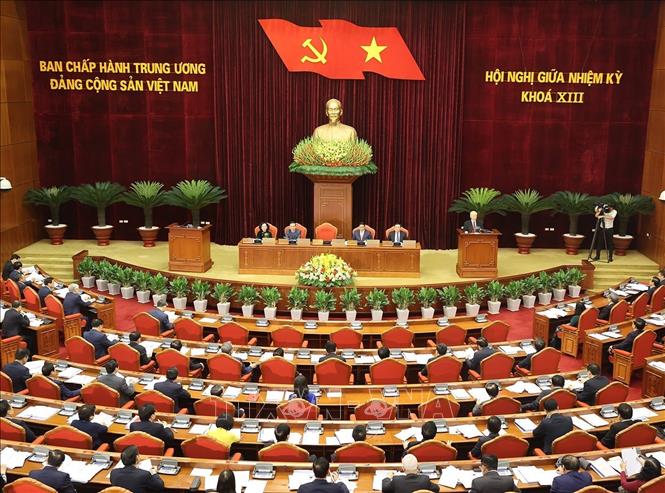




![[Photo] General Secretary To Lam attends the opening session of the Peace Council on Gaza.](https://vphoto.vietnam.vn/thumb/1200x675/vietnam/resource/IMAGE/2026/02/19/1771516865192_tbttolam5-jpg.webp)



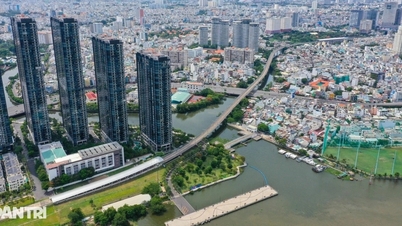

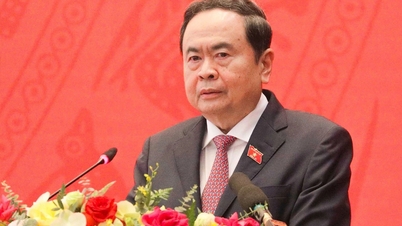

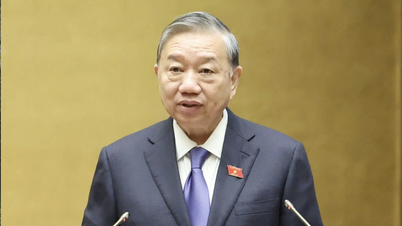
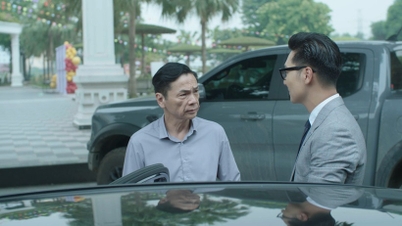

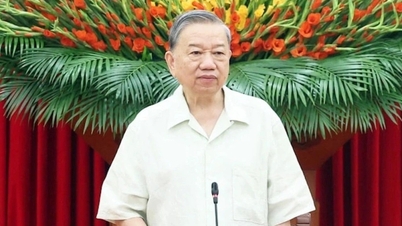
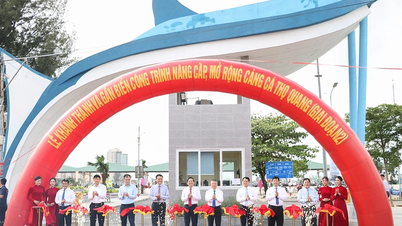





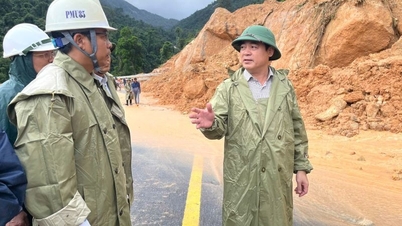




















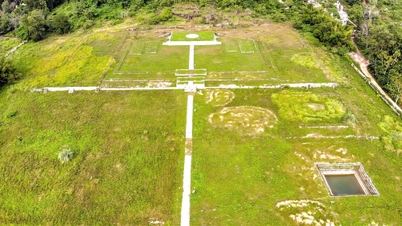




























































Comment (0)